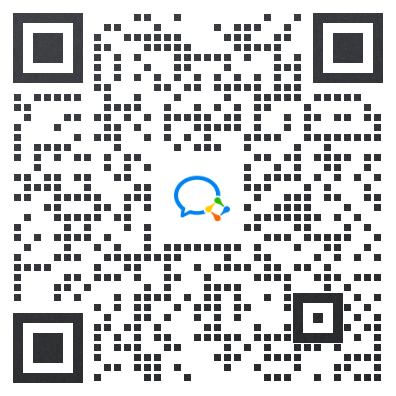2017年四川大学考博英语真题1
摘要:希赛网英语考试频道为大家分享“2017年四川大学考博英语真题1(阅读理解)”,更多考博英语相关信息,请关注希赛网英语考试频道。
希赛网英语考试频道为大家分享“2017年四川大学考博英语真题1(阅读理解)”,更多考博英语相关信息,请关注希赛网英语考试频道。
I Reading Comprehension (30%; one mark each)
Directions: Read the following six passages. Answer the questions below each passage by choosing A, B, C or D. Write your answers on the ANSWER SHEET.
Passage One
When Mark Zuckerberg posted a picture of himself on Facebook in June, a sharp-eyed observer spotted a piece of tape covering his laptop’s camera. The irony didn’t go unnoticed: A man whose $ 350 billion company relies on users feeding it intimate details about their lives is worried about his own privacy. But Zuckerberg is smart to take precautions.
Many of the cameras that can be pointed at us today are easy to spot. But researchers are developing recording devices that can hide in plain sight, some by mimicking animals. A company called AeroVironment has produced a drone that looks and flies like a humming bird. Engineers at
Carnegie Mellon, NASA, and elsewhere have designed “snakebots” that can maneuver in tight spaces and could be adapted for surveillance. Robotic bugs are in development, too, and engineers at UC Berkeley and in Singapore are developing cyborg beetles—real insects that can be remote-controlled via implanted electrodes and that might someday pack cameras. With the advent of the Internet of Things, appliances and gadgets will monitor many aspects of our lives, from what we eat to what we flush. Devices we talk to will record and upload our conversations,
as Amazon’s Echo already does. Even toys will make us vulnerable. Kids say the damdest things, and the talking Hello Barbie doll sends those things wirelessly to a third-party server, where they are analyzed by speech-recognition software and shared with vendors.
Even our thoughts could become hackable. The technology company Retinad can use the sensors on virtual-reality headsets to track user’s engagement. Future devices might integrate EEG electrodes to measure brain waves. In August, Berkeley engineers announced that they had produced “neural dust,” implantable electrodes just a millimeter wide that can record brain activity for scientific or medical purposes.
As the data collected by all the devices around us become overwhelming, we’ll increasingly rely on artificial intelligence to sift through them and make decisions, says Gary T. Marx, the author of Windows into the Soul: Surveillance and Society in an Age of High Technology. Algorithms are already used to identify potential terrorists, as well as to generate credit ratings and parole recommendations. Chicago police use an algorithm that analyzes arrest records, social networks, and other data to identify future criminals. Soon, bots will likely guide many aspects of personnel management, such as hiring and firing.
1. The word “sharp-eyed” in the first sentence of Paragraph One surely means •
A. able to see very well B. far-sighted
C. short-sighted D. having good-looking eyes
2. According to the second paragraph, which of the following statements is NOT true?
A. It is easy to detect many of the cameras watching us today.
B. Recording devices in the future may be totally invisible.
C. Some of the cameras may be designed in the shape of animals.
D. Real insects cannot be controlled to spy on people.
3. What kind of device is Amazon’s Echo according to the third paragraph?
A. It may be a recording and talking machine.
B. It may be a gadget that can record and upload information.
C. It may be a device that tracks its owner’s brain activities.
D. It may be a domestic appliance that helps people do their housework.
4. Which of the following best paraphrases the first sentence in Paragraph Four?
A. Hackers can even enter into our head.
B. Future devices may enable people to gain unauthorized access to our brains and find out what we are thinking.
C. Our brains may be stolen by Internet hackers.
D. Implantable devices can record our brain activities for scientific or medical purposes.
5. In the last paragraph,the author seems to say that .
A. future devices for collecting data will have a negative effect on our life
B. artificial intelligence based on data collected by future devices can be very useful
C. artificial intelligence will deprive us of our rights to make decisions
D. artificial intelligence may be useful to the police, but not to individual management
点击返回四川大学考博英语历年真题汇总
考博英语自学神器:四川大学-希赛学习包
版权辅导教材+推荐自学计划+在线智能题库+知识点练习+入群共同学习+1-2年服务期
考博英语培训课程:四川大学-希赛课程
结合历年考试真题,辅以相关理论知识,以轻松、简化的语言教授,让学生迅速掌握知识点及做题技巧。
素材来源:网络
延伸阅读
- 2026全国医学博士英语统考准考证打印时间
- 2026全国医学博士英语统考准考证打印流程
- 上海戏剧学院2026年招收攻读博士学位研究生招生简章
- 考博英语全国医学统考真题考情分析
- 桂林医科大学2026年在职医师攻读临床医学博士专业学位人员招生简章
- 研究生上多少年可以考博士

考博英语微信公众号

了解更多考试动态
考博英语备考资料免费领取
去领取

扫一扫,进入微信小程序,各院校历年真题随时随地可刷题,助力考博英语提分。
- 0
- 2
- 7
 专注在线职业教育25年
专注在线职业教育25年







 扫描二维码
扫描二维码
 扫描二维码
扫描二维码








